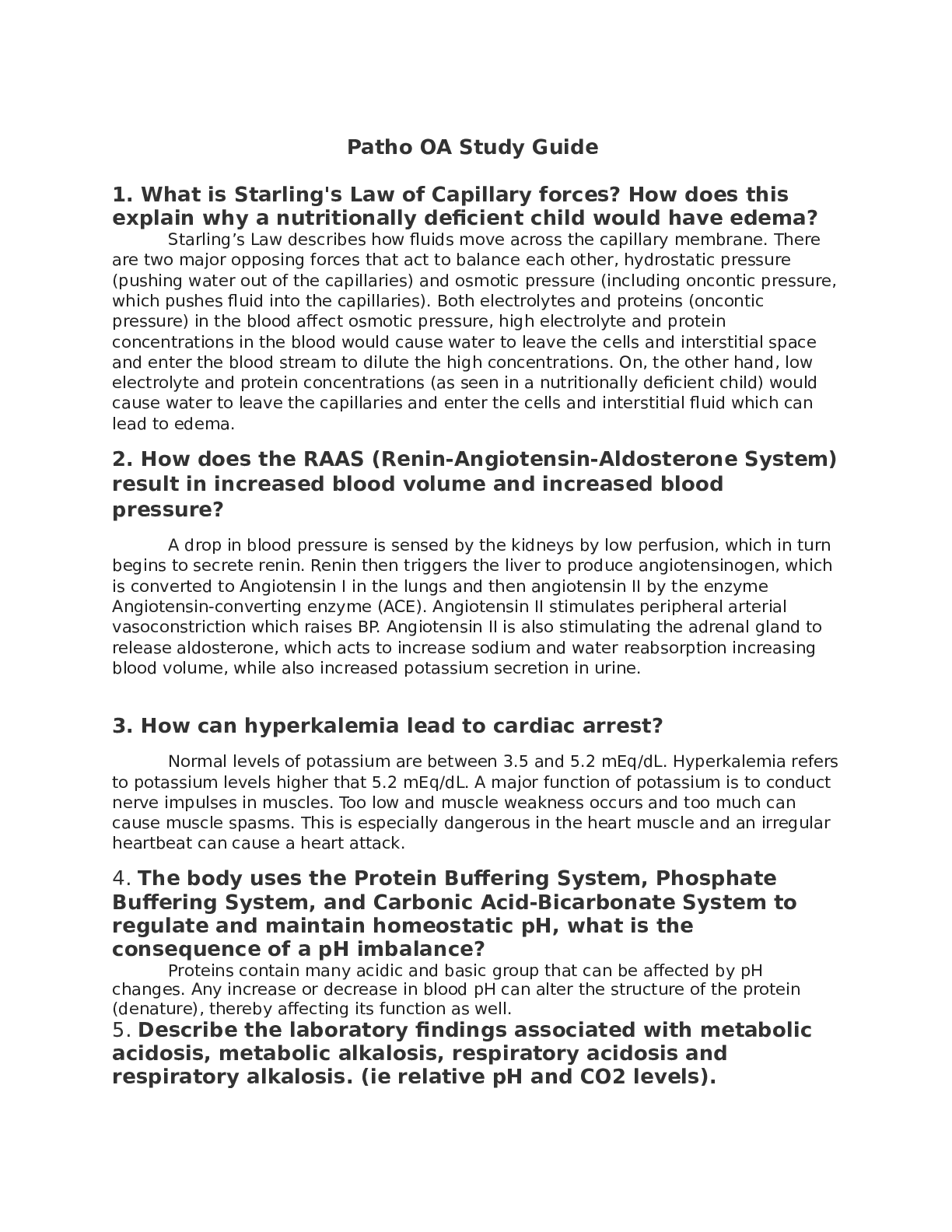D236 Pathophysiology Worksheet Answers
D236 Pathophysiology Worksheet Answers - D236 pathophysiology exam questions completed with correct answers question 1 1. A bedridden client has frequent. D236 pathophysiology section 1 lesson 2 cellular response and adaptation essential questions: Identify role of dna changes in congenital abnormalities mutations in genes or chromosomal abnormalities. Answer>>>>the body uses the raas system to regulate blood volume and pressure, the immune response reacts to fight infection, the inflammatory response reacts to injury To prepare for the competency objective assessment, ask yourself these questions: D236 pathophysiology worksheet section 1 lesson 1:
How does development disrupt congenital abnormalities? Oncotic pressure is the force exerted by proteins (albumin) in the. His co2 level is increased because his lungs have. What is the primary determinant of oncotic pressure?
How does this explain why a nutritionally deficient child. What is the primary determinant of oncotic pressure? Describe homeostasis and the importance to maintain optimal physiological health and wellbeing. This document provides a study guide with 16 multiple choice questions about pathophysiology. Identify role of dna changes in congenital abnormalities mutations in genes or chromosomal abnormalities. How does development disrupt congenital abnormalities?
SOLUTION Wgu pathophysiology d236 exam with questions and answers
SOLUTION D236 pathophysiology exam study guide with 100 verified
Wgu Pathophysiology Study Guide d236 Pathophysiology Exam Questions
WGU pathophysiology D236 study guide Certification Exam answers DocMerit
WGU D236 pathophysiology Exam Study GuideWith 100 verified answers
D236 pathophysiology section 1 lesson 2 cellular response and adaptation essential questions: How does this explain why a nutritionally deficient child. Osmotic pressure movement of water molecules from a region of low solute concentration to a high solute concentration. Oncotic pressure is the force exerted by proteins (albumin) in the. Pathophysiology of als is that upper lower motor neurons become sclerotic and die.
There are two major opposing forces that act to balance each other, hydrostatic pressure (pushing water out of the. Describe homeostasis and the importance to maintain optimal physiological health and. To prepare for the competency objective assessment, ask yourself these questions: Studying d236 pathophysiology at western governors university?
Answer>>>>The Body Uses The Raas System To Regulate Blood Volume And Pressure, The Immune Response Reacts To Fight Infection, The Inflammatory Response Reacts To Injury
Describe homeostasis and the importance to maintain optimal physiological health and wellbeing. D236 pathophysiology worksheet section 1 lesson 1: Identify role of dna changes in congenital abnormalities mutations in genes or chromosomal abnormalities. His co2 level is increased because his lungs have.
How Does Your Body Respond To Infection?
On studocu you will find 38 practice materials, lecture notes, summaries, coursework, assignments, Describe how your body responds to an infection. Can you describe how a patient's body will respond to an infection? How does ph impact michael's basal metabolic panel?
Oncotic Pressure Is The Force Exerted By Proteins (Albumin) In The.
D236 pathophysiology worksheet section 1 lesson 1: Identify role of dna changes in congenital abnormalities. To prepare for the competency objective assessment, ask yourself these questions: D236 pathophysiology exam questions completed with correct answers question 1 1.
Michael's Pulmonary Edema Leads To Respiratory Acidosis.
Each question includes 4 answer options and the correct answer is provided. T cells produce cytokines, which stimulate b cells. Starling's law describes how fluids move across the capillary membrane. How does this explain why a nutritionally deficient child.
Studying d236 pathophysiology at western governors university? D236 pathophysiology exam questions completed with correct answers question 1 1. How does your body respond to infection? Can you describe how a patient's body will respond to an infection? T cells produce cytokines, which stimulate b cells.








